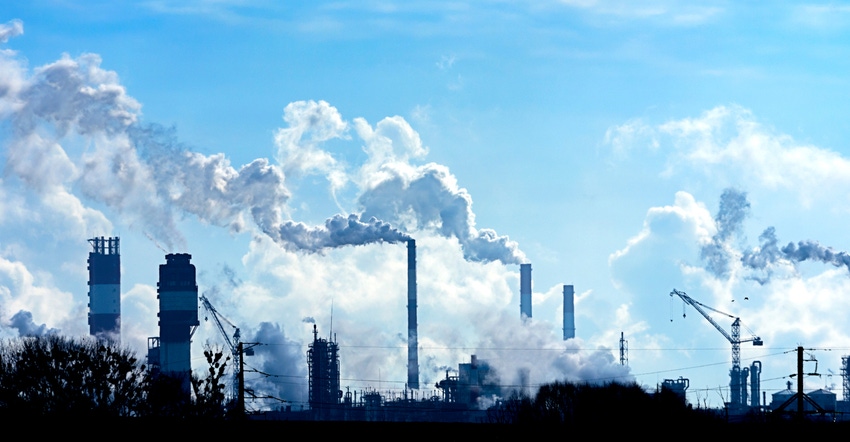EPA Requiring Chemical Companies to Cut Toxic Emissions
More than 200 chemical plants will be required to cut their emissions of toxic chemicals.

The US Environmental Protection Agency (EPA) has finalized a set of rules that will significantly reduce emissions of toxic air pollution from chemical plants, including the potent air toxics ethylene oxide (EtO) and chloroprene.
The reductions dramatically reduce the number of people with elevated air toxics-related cancer risks in communities surrounding the plants that use those two chemicals, especially communities historically overburdened by air toxics pollution.
The number of people who have elevated cancer risks because they live within 6 miles of a chemical plant would drop by 96%, the EPA said. Cancer cases within about 31 miles of facilities that release toxic pollution into the air are expected to fall by about 60% under the rule.
That’s because the new regulations on 218 chemical plants are expected to cause them to reduce their releases of toxic pollution by more than 6,200 tons per year.
Among the areas expected to benefit from the rule is an area of Louisiana known as “Cancer Alley,” with a large number of chemical plants and high cancer rates, according to the agency. It also claims that the issue is also environmental justice — as people of color and low-income people face disproportionately high pollution levels.
In addition to reducing the release of the compounds, plants will also have to monitor their levels at the edge or “fenceline” of their facility.
Activities that are covered by the regulation are expected to emit 80% less of these substances as a result of it, the EPA said.
Additional substances whose emissions are expected to be reduced under the rule include other chemicals like benzene and vinyl chloride. Benzene is used in products like plastics, dyes and nylon; vinyl chloride is used to make PVC plastic.
The American Chemistry Council says it is reviewing the rule and following its impacts on various industries in the country.
The ACC's official statement:
"This rule will have significant implications on the production of key chemistries such as ethylene oxide, which supports national priorities like electric vehicle battery development, domestic semiconductor manufacturing, and healthcare access.
“We appreciate EPA addressing some concerns raised by stakeholders, including providing more time to comply with the rule’s expansive and problematic fenceline monitoring requirements and removing impractical controls for important processes like flare operation.
“However, we remain concerned with several other significant aspects of the rule, including EPA’s removal of delay of repair provisions that allow for timely and common-sense periods of repair for small leaks, as well as EPA’s use of a deeply flawed toxicity value for ethylene oxide derived from the Integrated Risk Information System (IRIS) as a benchmark. This IRIS value defies reason — it is 23,000 times lower than naturally occurring levels found in the human body. Some of the new restrictions threaten to affect the production of chemistries that are needed for countless everyday products and are used in key industries, including agriculture, healthcare, semiconductors, and electric vehicle batteries. Unfortunately, the value’s continued application in this rule along with EPA’s reliance on outdated emissions data has led to a final rulemaking based on inflated risks and speculative benefits.
“We also remain concerned with the recent onslaught of chemical regulations being put forth by this Administration. Many of these restrictions undermine key priorities of the current Administration, undercutting American jobs, domestic manufacturing, and critical legislation like the Infrastructure Investment and Jobs Act, the Inflation Reduction Act, and the CHIPS and Science Act.
“Unless the Biden Administration takes a different approach to how it creates and implements regulations, the availability of critical chemistries will dwindle — and the country’s climate, infrastructure, and supply chain priorities will suffer as well.”
About the Author(s)
You May Also Like




